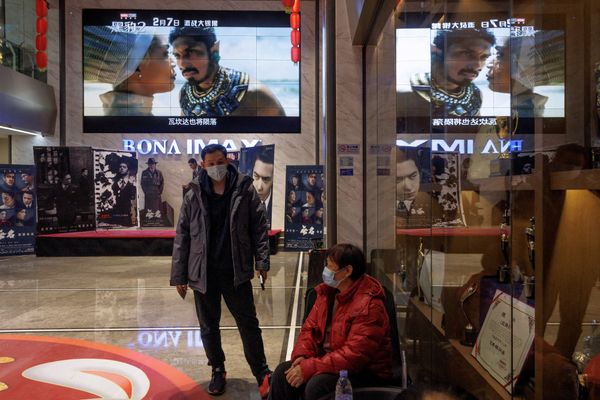BEIJING, April 10 — China has said it would immediately restrict imports of Hollywood films in retaliation for President Donald Trump's escalation of United States (US) tariffs on imported Chinese goods, though analysts say the impact is likely to be minimal.
After three decades during which China annually imported 10 Hollywood movies, its National Film Administration (NFA) said Trump's increase of tariffs on Chinese imports would further sour domestic demand for US cinema in China after years of decline.
"We will follow market rules, respect the audience's choices, and moderately reduce the number of American films imported," the NFA said on its website.
Chris Fenton, author of 'Feeding the Dragon: Inside the Trillion Dollar Dilemma Facing Hollywood, the NBA, and American Business', said the move was a "super high-profile way to make a statement of retaliation with almost zero downside for China."
Hollywood studios once looked to China, and its giant film market, to help boost the box office performance of movies. But domestic films increasingly have outperformed Hollywood’s fare in China, with Ne Zha 2 this year eclipsing Pixar's Inside Out 2 to become the highest-grossing animated film of all time, according to Variety.
Now, US films account for only five per cent of the overall box office receipts in China's market.
"And worse for Hollywood, China taxes that small amount 50 per cent before any revenues go back to the USA," he told Reuters.
Small box office take
Hollywood studios receive only 25 per cent of China's box office, whereas other markets give studios double that.
"Such a high-profile punishment of Hollywood is an all-win motion of strength by Beijing that will surely be noticed by Washington," Fenton said.
Earlier this week, two influential Chinese bloggers suggested that one response to Trump's tariffs would be to ban or restrict American movies. Some exhibitors dismissed the possibility, noting China's Film Bureau had given Marvel's Thunderbolts an April 30 release date.
The restrictions arrive before the start of the summer box office, with such major releases as Mission Impossible — The Final Reckoning, which may mark Tom Cruise's last appearance in the long-running franchise, a new Superman movie from Guardians of the Galaxy filmmaker James Gunn, and Marvel’s new take on The Fantastic Four.
S&P Global Market Intelligence Kagan principal analyst Seth Shafer predicted the restrictions would have a limited impact.
"Only roughly 25 per cent of domestic wide-release films are now released in China, and that percentage has dropped steadily over time due to increasing competition from China’s local film production industry.
"For domestic films that do get a release in China, typically less than 10 per cent of the film’s global gross box office revenue comes from China," he said.
IMAX said it expects the newly announced restrictions to have no material impact on its exhibition slate, which includes Hollywood, Chinese, and international films.
"We continue to expect a strong year for IMAX in China, coming off our highest-grossing first quarter ever in the country,” a spokesman said in a statement to Reuters.
In 1994, China began importing 10 American films each year through the internationally recognised revenue-sharing distribution model. Imports such as Titanic and Avatar became box office smashes in the Chinese market, making actors such as Leonardo DiCaprio and directors such as James Cameron household names among Chinese film lovers across generations.
China is the world's second-largest film market. However, in recent years, as local entertainment culture has blossomed, Chinese audiences' enthusiasm for Hollywood movies has waned.
Since 2020, domestic films have consistently accounted for around 80 per cent of annual box office revenue, up from around 60 per cent previously.
On China's all-time box office list, only one imported film ranks in the top 20 — Avengers: Endgame, with a revenue of 4.25 billion yuan (RM2.59 billion). The remaining films in the top 20 are all domestic productions.
— Reuters




